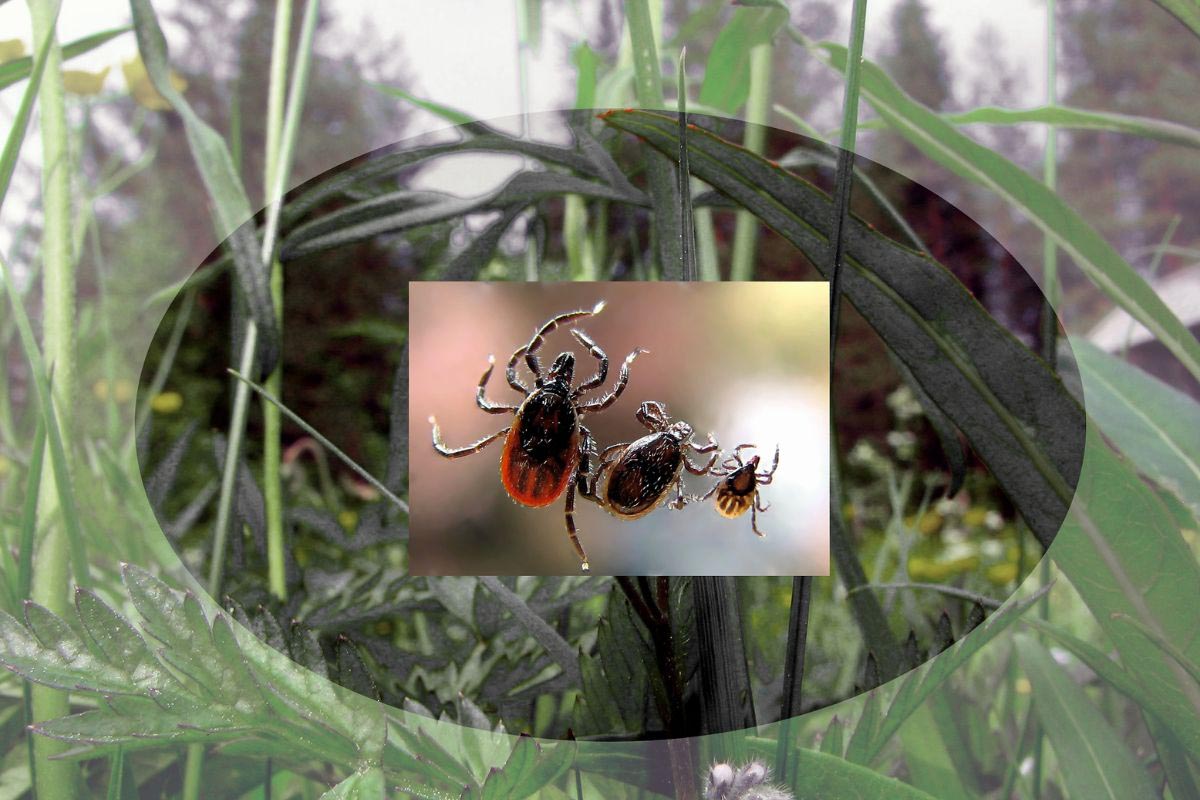There’s a tick in Virginia that can make you allergic to red meat, and it found me while I was hunting spring gobblers.
By Emily Strother
It’s a fact that ticks and hunters are drawn to the same places—where there’s abundant wildlife, vast spaces to roam, and the raw scent of nature when the wind blows in the springtime. Speaking from experience, it’s almost impossible to get through a season without having a few stuck to me.
Each time I slipped into the woods to turkey hunt, I did my best to protect myself from ticks. Knowing that there was a growing prevalence of the red meat allergy among the Virginia hunting community I knew, I felt vulnerable each time I walked through the woods. Despite my effort, I wasn’t immune to their desire to bite me. But I suppose we’ve got to take risks to do things we love sometimes.
In 2019, I contracted a red meat allergy–known as alpha-gal syndrome (AGS) or allergy—from a tick bite I got while hunting turkeys that spring. As a gal who enjoys hunting and experimenting with wild game in the kitchen, realizing that I could no longer consume venison or other mammal meat was a hard pill to swallow. Besides a fried piece of deer tenderloin over the woodstove, who doesn’t love a tender piece of filet mignon every now and then?
What is Alpha-gal?
Alpha-galactose (galactose-α-1,3-galactose) is a carbohydrate that is present in all mammals except higher primates, such as apes and humans. This carbohydrate is present in mammal meat such as beef and pork, but more importantly for hunters, it’s present in wild game including venison, elk, bear, rabbit, squirrels, and other game we pursue here in Virginia. Alpha-gal is not found in fish, reptiles, birds, or people.
Dr. Jonathan Mozena, a board-certified allergist and immunologist, said that AGS is where an individual develops an allergy to the carbohydrate present in mammal meat. This is unique because most other allergies—such as a peanut allergy—are an allergy to a protein found in a particular food.
“Alpha-gal is unique because it’s an allergy to a carbohydrate and not a protein. If a person is allergic to beef, that same individual will react to pork, lamb, bear, deer, and so forth,” he said.
Another unusual characteristic of the allergy is that while most food allergies occur within minutes of eating, that’s not the case with AGS. Allergic reactions to alpha-gal tend to be delayed by nearly four to eight hours. The first time I experienced a reaction was almost eight hours after I ate a hamburger.

According to Dr. Mozena, it’s believed that alpha-gal is mostly found in the fatty tissue of the meat, and fatty tissue typically gets absorbed into the lymphatic system first before entering the bloodstream.
“The way fats get absorbed in the body is different from the way proteins do,” he said. “It takes several hours for fats to get through the lymphatic system, whereas proteins get absorbed into the bloodstream immediately. The transit through the lymphatic system is what likely accounts for the delay of the alpha-gal from entering the bloodstream.”
Despite these differences, AGS presents the same reactions as other allergies, including hives, itching, a drop in blood pressure that can cause dizziness, chest tightness, abdominal cramping, diarrhea, vomiting, and in some severe cases, anaphylactic shock and uterine cramping.
The Transfer of Alpha-gal to a Human
It was presumed that ticks feed on the blood of other mammals, such as deer, and would transfer the alpha-gal molecule once it latched on to a human. But there’s new speculation that a tick itself can produce an alpha-gal-like structure.
“There is a current theory that ticks make alpha-gal themselves. Studies have shown that some ticks carry alpha-gal in their saliva and intestinal tract,” said Dr. Mozena. Though, this theory isn’t fully developed yet.
While the lonestar tick is the most known tick to carry alpha-gal in the U.S., there are other ticks worldwide that likely carry alpha-gal. Studies have also shown that even chiggers can likely carry alpha-gal.
The good news, at least for some, is that not everyone will develop an alpha-gal allergy after being bitten. Mozena said there is likely something genetically different about those who contract the allergy.
“There are millions of tick bites each year, but not millions of cases,” said Mozena. “Being genetically predisposed creates a perfect storm to develop the allergy. There may also be a third thing that has to happen beyond the genetic predisposition and the tick bite that we don’t understand yet.”
It’s also unclear whether a tick can immediately infect a person once it latches on. Mozena said he sees a steady stream of patients, most often diagnosing patients with the allergy in the summer and fall, but it’s not always clear how long it takes for the patient to be exposed. Currently, he treats around 40 to 50 patients annually with AGS.
Other Hunters, Looking Forward, and Prevention
I’m not the only hunter to have the “perfect storm” that results in the alpha-gal allergy. Randy Feehan, a hunter from Central Virginia, says it was only about a week after he was bitten by a lonestar tick while deer hunting on the Eastern Shore of Virginia when he started noticing initial reactions after he ate venison.
“I would break out in hives, wheeze, and my eyes would get really swollen,” said Feehan. Feehan still has AGS nearly a decade later, and it’s changed his hunting habits, as it has for me.
“Not being able to eat wild game was big for me, because I wasn’t able to eat what I was hunting,” said Feehan, referring to deer. “This allergy has turned me into more of a turkey hunter because I can eat it, so I focus on that more. I focus more on bird hunting in general.” Despite not being able to consume venison himself, Feehan said that he still sometimes hunts deer and provides meat for others. Unfortunately, his father and uncle, who also hunt, also contracted AGS.
The good news for those who have AGS is that the allergy typically recedes over time. “For many people, if they aren’t bitten by another tick for a while, the level of alpha-gal [present in the blood] typically drops and they can be reintroduced to red meat,” said Mozena.
Ongoing research is being conducted to better understand the risks associated with AGS. While there is currently no treatment for AGS, simply being aware and taking precautionary measures to avoid tick bites is vital to protect yourself this season.
Turkeys don’t have great sniffers. As you prepare for the season, make sure to use bug spray and permethrin on your hunting clothes (always read proper handling directions before use), and check yourself for ticks immediately upon returning from your hunt. Otherwise, you could need to alter your harvesting to suit a new diet.


